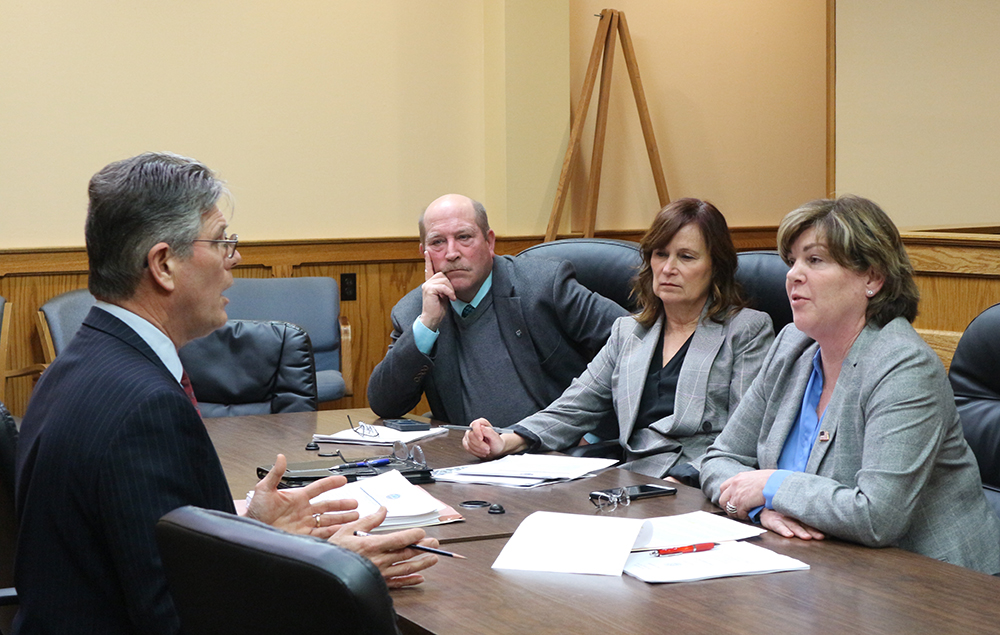Town Board members at odds over executive session

Should what happens in executive session stay in executive session?
That question became the crux of an argument that erupted at Town Hall after a public work session Thursday ended in a split vote to enter into an executive session.
Supervisor Laura Jens-Smith and Councilwoman Catherine Kent both voted against holding an executive session, citing confidentiality concerns.
“It has come to my attention that matters that have been discussed in executive session have been disclosed to the public,” Ms. Jens-Smith said. “I am not comfortable going in there.”
She asked for legal guidance from town attorney Bob Kozakiewicz.
According to the New York State Open Meetings Law, executive sessions may be held to discuss matters which will “imperil the public safety,” if disclosed. Other reasons can include disclosing the identity of law enforcement agents or investigations, discussions involving litigation, collective bargaining, medical history, personnel matters and real estate transactions.
The Town Board is not permitted to take action by voting during executive sessions.
“This is not necessarily an uncommon issue that arises with town boards,” Mr. Kozakiewicz said.
“With regard to what is considered to be sacrosanct or not permissible to be discussed outside the parameters of executive session is a little bit less clear. Executive session does not equate to confidentiality,” he continued.
The supervisor added: “You have the expectation that those matters will not be disclosed out of executive session.”
According to the Riverhead Town Code of Ethics, “a Town officer or employee, and a former Town officer or employee, shall not disclose any confidential or privileged information that he or she has acquired in the course of his or her official duties.”
The law does not explicitly refer to executive sessions.
“If this is a concern of the board, why don’t we adopt rules that say anything discussed in executive session should not be divulged,” Mr. Kozakiewicz suggested, acknowledging the legal gray area as to what constitutes “privileged” information.
There were three personnel matters regarding hiring an employee, a contractual item regarding a contract with S-Power and a litigation matter related to a proposed lawsuit against the Suffolk IDA on the executive session agenda for Thursday’s work session.
Ms. Jens-Smith accused Councilwoman Jodi Giglio of divulging information related to hiring an employee outside of an executive session last week.
“It goes both ways,” Ms. Giglio said after the work session. “We have an employee that’s retiring and we are looking to replace him. I have a difference of opinion as to who we should be hiring.”
Councilman Jim Wooten said the board’s differing opinions is an element of democracy.
“There’s things that happen in that executive room that I don’t like. It is what it is. I vote no up there,” he said, pointing to the dais. “I let my vote speak for me. But I don’t try and undermine the process.”
“This is the problem we’re having,” Ms. Jens-Smith said while addressing Mr. Kozakiewicz. “We need to come to some sort of agreement here, because right now we’re stopped dead in the tracks. If people are [acting] outside of what our code of ethics allow, then they need to be held accountable.”
“So file an ethics complaint, as you’ve done in the past,” Ms. Giglio shot back.
Before adjourning the work session, Ms. Kent spoke about the importance of trust among the Town Board.
“We’re five people,” she said. “We should be able to work together, and work as a team for the betterment of Riverhead.”









